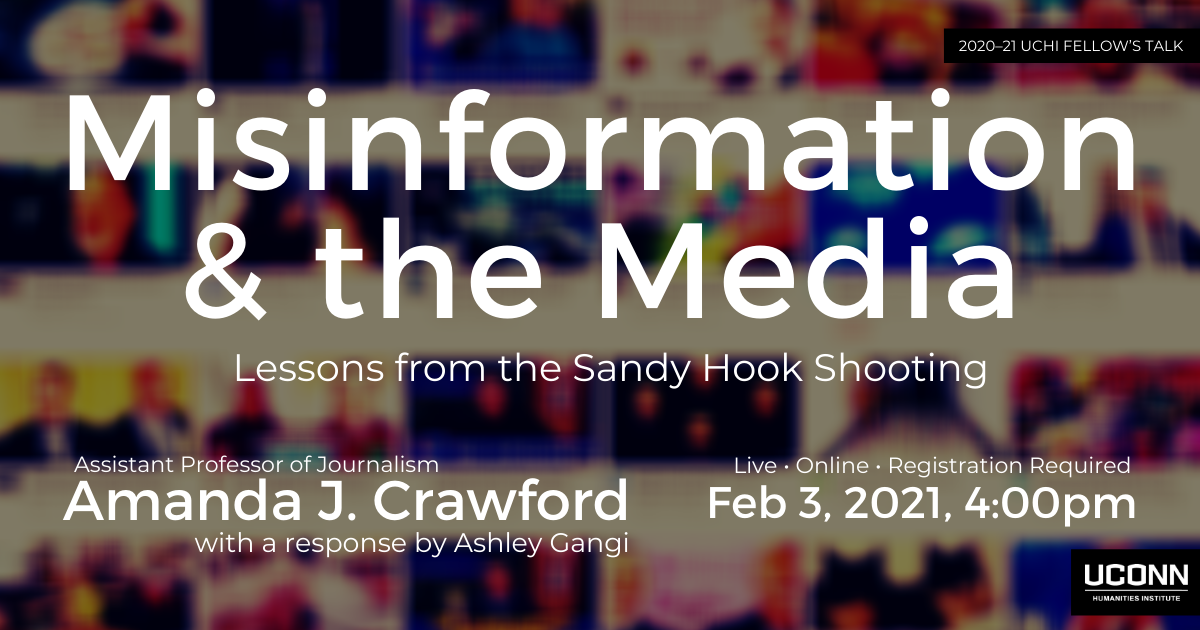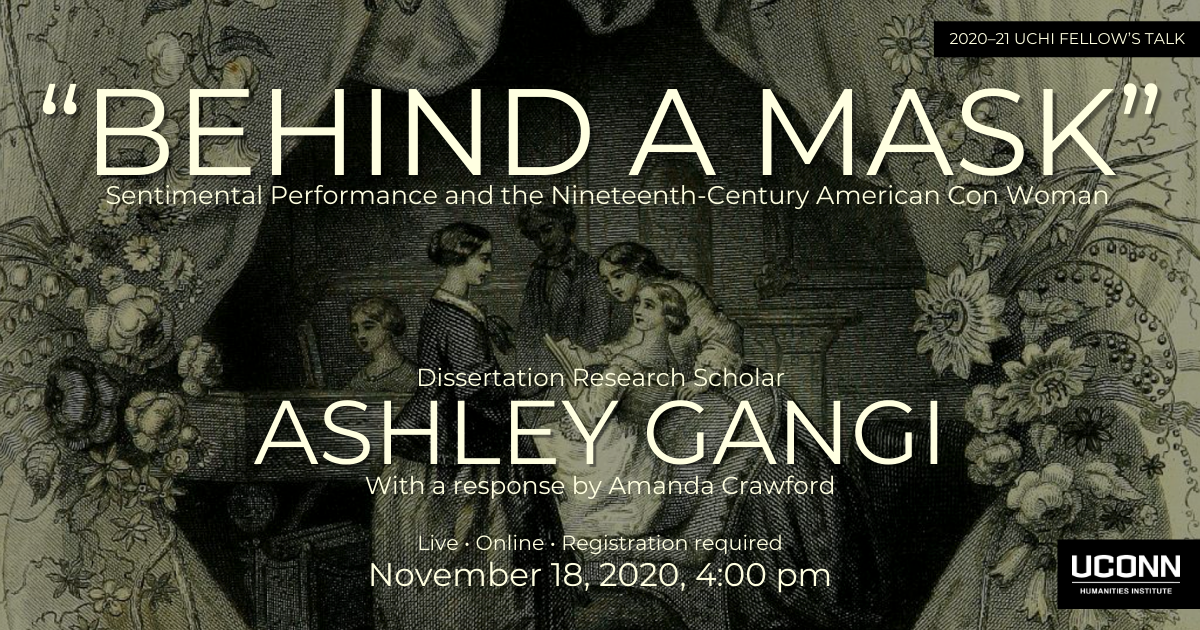Misinformation & the Media: Lessons from the Sandy Hook Shooting
Amanda J. Crawford (Assistant Professor of Journalism, UConn)
with a response by Ashley Gangi (Ph.D. Candidate, English, UConn)
Wednesday, February 3, 2021, 4:00pm (Online—Register here)
After the 2012 mass shooting at Sandy Hook Elementary School, the international media descended on the small town of Newtown, Connecticut. Though errors may be inevitable in breaking news coverage, the mistakes made by journalists in the first 24 hours fueled doubts about the shooting that linger today. Other coverage decisions exposed private individuals to years of harassment, fed “trolls,” and helped denialism to spread. As conspiracy theories roil public discourse, the lessons from Sandy Hook reveal points of caution for journalists and local governments and help illustrate the challenges in combatting misinformation.
Amanda J. Crawford is an assistant professor of journalism at the University of Connecticut, where she teaches reporting, journalism ethics and media law. A former reporter for Bloomberg News, The Arizona Republic and The Baltimore Sun, Crawford has covered elections and government across the U.S. and written extensively about gun policy, criminal justice, immigration, health care, reproductive rights and sexual assault. Her writing has been widely published in other major media outlets and literary journals including Businessweek, People, National Geographic, Ms. Magazine, Phoenix Magazine, The Chronicle of Higher Education, and Creative Nonfiction. Before coming to UConn, she held faculty appointments at Western Kentucky University and Arizona State University. Her UCHI fellowship project is a narrative nonfiction book that follows the fight against misinformation in the years since the mass shooting at Sandy Hook Elementary School.
Ashley Gangi is a fifth-year Ph.D. student in the English department at the University of Connecticut. Her research interests include nineteenth-century American literature, maritime literature, and literature of the Gilded Age and Progressive Era having to do with finance. Her dissertation, “May I Present Myself? Masks, Masquerades, and the Drama of Identity in Nineteenth-Century American Literature” explores the relationship between confidence men and women and conceptions of value in nineteenth-century America. She has been published in Studies in American Naturalism and has a piece forthcoming in the “Extracts” section of Leviathan: A Journal of Melville Studies.
Registration is required for the event.
If you require accommodation to attend this event, please contact us at uchi@uconn.edu or by phone (860) 486-9057.
Watch now:







